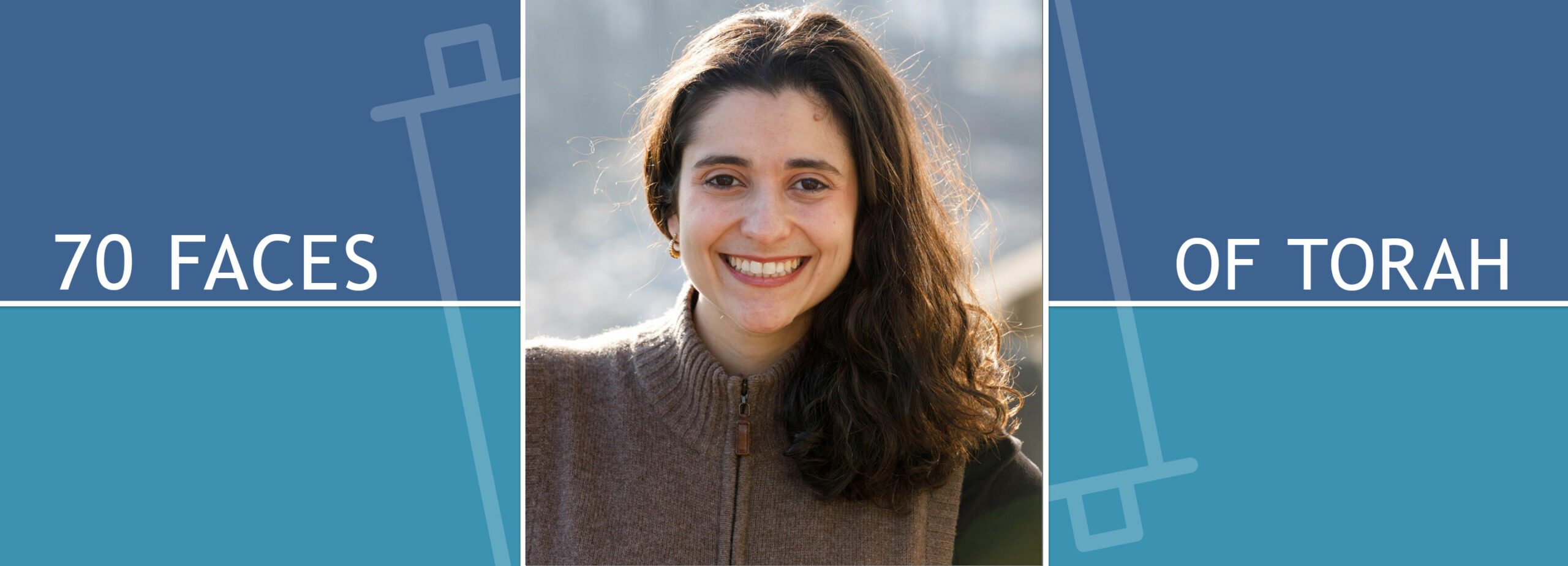Genesis What Violence is Being Perpetrated In My Name
(And What Am I Going To Do About It)?

Parshat Vayishlach (Genesis 32:4 – 36:43).
Weekly Torah reading offers us the opportunity to read our sacred texts against the backdrop of our lives. The ritual allows each parsha to collect new meanings and associations drawn from the ever-changing events of the world around us. These new understandings come back to us again and again through each year’s encounter with that same parsha. Like a snowball that grows, the stories become richer and deeper with each passing year.
Parshat Vayishlach has become a strong example for me. In early December of 2014, we read Vayishlach the same week that a grand jury chose not to indict the officer whose chokehold killed Eric Garner. That week was filled with protests, as people took to the streets in outrage. We had seen the video. We had witnessed the violence. The violence had not come from the black man—as stereotypes would have us expect—but from the police, someone acting on behalf of the city I called home, acting on my behalf. The image stayed with me as I listened to the Torah chanted that Shabbat. Each year since, I am reminded of the power of reading these stories together.
Parashat Vayishlach opens with a Jacob who is terrified of violence. He is about to reunite for the first time with the brother from whom he fled years before. His fear of an attack from Esau runs deep and he prepares for the worst. Jacob puts tremendous effort into this preparation. To keep his family safe from this perceived violence, Jacob divides them into groups, arranges them in a very particular configuration, and sends bribes. Esau is Jacob’s enemy, and is therefore assumed to be not only wicked, but violent.
It turns out that Jacob’s fear is misplaced. All of this preparation to ensure his safety and the safety of his family seems to have been unnecessary. The encounter with Esau contains no violence at all. It is peaceful and loving, even emotional. It is not at all the violent encounter that Jacob prepared for.
But there is violence in this parsha. And Jacob doesn’t see it coming—this violence catches Jacob completely by surprise. The violent actor is not Jacob’s enemy, but his own children. After their sister’s rape, two of Jacob’s sons, Simeon and Levi, go on a revenge massacre to defend their family’s honor. Jacob is blindsided, and furious. He was unable or unwilling to see the violent tendency in his own family, to believe that it could have been fostered in his own home. Of his enemy, he wrongly assumed violence. Of his family, he wrongly assumed peace.
Jacob is not alone in either of these mistakes. Simeon and Levi wage a violent attack in the name of their family’s honor, on their father’s behalf. Police violence in the United States is enacted on behalf of the residents of a city. Reading this parsha after the murder of Eric Garner forced me (much too late) to stop and ask: “Who is enacting violence in the world on my behalf?” And what am I doing about it?
Jacob rejects his son’s behavior immediately. And his anger and disappointment is lasting, reappearing two parshiot later, when he is on his deathbed. While the other sons receive blessings, Simeon and Levi are rebuked. Jacob asks not to be identified as their father:
Simeon and Levi are a pair; Their weapons are tools of lawlessness. Let not my person be included in their council, Let not my being be counted in their assembly. For when angry they slay men . . . . (Genesis 49: 5-7)
Once the violence is revealed, Jacob distances himself. These two boys are “bad apples,” he says. They are not representative of the children of Israel. Jacob condemns the murders (something the grand jury did not do in the case of Eric Garner), but he never fully owns that the murderers grew up under his roof. Jacob is right to rebuke his children, but the response is too late. Condemning violence after the fact isn’t enough. Six years after the death of Eric Garner, this is a lesson we are still learning. We can do better.
What might have been different if Jacob invested less time working to protect his family from a wrongly-perceived threat of violence from Esau, and instead put that attention towards communicating his values to his own children? What could our society look like if instead of apologizing and mourning deaths from police violence against black people, we worked harder to prevent these attacks? How might Jacob, and how might we, ensure that carrying the title “Children of Israel” means rejecting this kind of violence? These questions are as relevant for us as they are for Jacob. We must not make these same mistakes today. Let us work as hard to prevent violence coming from our homes as we do to protect our families from violence perpetrated by others.
Parshat Vayishlach will always take me back to those weeks after Eric Garner’s death. Each year, I will be called on again to ask, “what violence is being perpetrated in my name, and what am I going to do about it?”
Rabbi Avi Killip serves as Vice President of Strategy and Programs at Hadar. She was ordained in 2014 from Hebrew College’s pluralistic Rabbinical School in Boston. She was a Wexner Graduate Fellow and a Shusterman Fellow and holds Bachelors and Masters from Brandeis University in Jewish Studies and Women & Gender Studies. Avi teaches as part of Hadar’s Faculty and is host of the Responsa Radio podcast.

